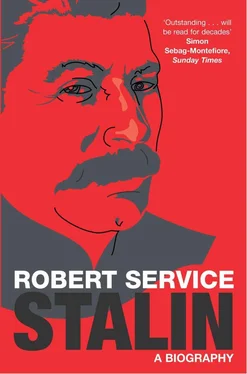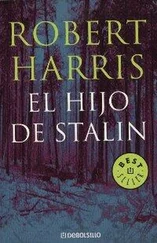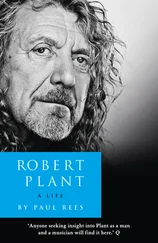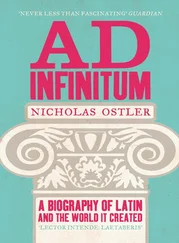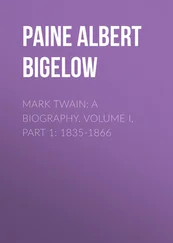Rukhimovich, Moisei
Russia (post-1991): conditions; see also Soviet Union
Russian Bureau of Central Committee: differences in; Stalin admitted to; welcomes return of Lenin
Russian Empire: national question in; in First World War; popular unrest in; and sense of nationhood; see also Provisional Government
Russian language: honoured; Stalin’s views on
Russian Orthodox Church: attacked; maintains some autonomy; restrictions relaxed in war; post-war position
Russian Social-Democratic Workers’ Party: in Georgia; Iskra campaigns for; and ethnic considerations; Second Party Congress (Brussels and London, 1903); and popular unrest (1905); Third Party Congress (London, 1905); Fourth Party Congress (Stockholm, 1905); Fifth Party Congress (London, 1907); Bolshevik-Menshevik differences in; leaders return to Switzerland; membership numbers; Mensheviks excluded; new Central Committee formed
Russian Socialist Federal Republic
(RSFSR): Constitution; within Soviet federation; lacks own communist party; and Leningrad ambitions
Russians (ethnic): elevated; Stalin honours at war’s end
Russo-Japanese War (1904–5)
Rustaveli, Shota; Knight in the Panther’s Skin
Ryazanov, David
Rybin, A.I.
Rykov, Alexei: and Democratic State Conference; membership of Sovnarkom; Lenin proposes promoting; attacks Stalin; Stalin offers resignation to; supports Bukharin’s agrarian policy; Stalin proposes dismissing; Stalin vilifies; reprimanded; tried
Ryutin, Maremyan,
St Petersburg (sometime Petrograd; Leningrad): massacre (1905); Stalin operates in; renamed Petrograd; industrial unrest in (February 1917); Soviet; between February and October revolutions; protest demonstration (July 1917); in October Revolution; renamed Leningrad; NKVD purges in; Germans threaten and besiege; supposed conspiracy; local patriotism in
Sakhalin
Samoilov, F.
Saturn, Operation
Schmidt sisters: legacies to Russian Social-Democratic Workers’ Party
Schulenburg, Count Friedrich Werner von der
science: controlled by Stalin
‘scissors crisis’
Sebag-Montefiore, Simon
‘second front’
Serebryakov, Leonid
Sergeev, Artëm (Stalin’s adopted son)
Sergei, Acting Patriarch
Shakhty coal mine, Don Basin
Shamil (Islamist rebel)
Shaumyan, Stepan
Shepilov, D.T.
Shevchenko, Taras
Shlyapnikov, Alexander
Shneidorovich, Dr M.G.
Sholokhov, Mikhail
Shostakovich, Dmitri
show trials; in post-war eastern Europe
Shreider, A.
Shumyatski, Boris
Shvernik, Nikolai
Siberia: grain supplies from; see also Turukhansk District
Simonov, Konstantin
Siqueiros, David Alfaro
Sklarska Poreba, Poland
Skobelev, Mikhail
Skrypnik, Mykola
Slánsky, Rudolf
Slovakia: reparations to USSR
Smilga, Ivan
Smirnov, A.P.
Smirnov, Ivan
Smolny Institute, Petrograd
Smyrba, Hashim
Snesarev, Andrei
Sochi
Social-Federalists
socialism: as Marxist ideal
‘socialism in one country’
Socialist-Revolutionaries: ridicule Stalin; little appeal in Caucasus; leaders return to Switzerland; oppose Kerenski; and Democratic State Conference; support Provisional Government; walk out from Second Congress of Soviets; as potential rivals; arrested and sentenced
Sokolnikov, Grigori
Solomin, V.G.
Solvychegodsk
Sorge, Richard
Sotsial-Demokrat (newspaper)
Souvarine, Boris
Soviet Union: isolation; federal structure; title adopted (Union of Soviet Socialist Republics); and threat of outside intervention; and autonomous republics; economic development; modernity in; citizens’ rights in; Constitutions: (1924); (1936); and nationhood; political patronage and cliental groups; excluded from League of Nations; foreign policy; armaments production; USA recognises; non-aggression pact with Nazi Germany (1939); Winter War with Finland; Hitler plans to attack; Germans invade (Operation Barbarossa); German conquests and advance in; wartime scorched-earth policy; wartime economic organisation and production; Western Allies support for; wartime refugees in; national anthem; patriotism emphasised; Western Allies’ supplies to; victory over Germany; post-war power; human and material losses in war; post-war regime and repressions; devaluation and economic regeneration; student unrest in; post-war relations with Western Allies; and beginnings of Cold War; and Western containment policy; develops nuclear weapons; corruption and maladministration in; hostility to West; foreign influences excluded; reforms after Stalin’s death; collapse (1991); totalitarianism in; see also Russia (post-1991)
Soviet of Workers’ and Soldiers’ Deputies (Petrograd)
soviets (councils): formed; as source of power
sovkhozes (collective farms)
Sovnarkom (Council of People’s Commissars): composition; Stalin’s role in; and national question; and Gosplan’s control of economy; redesignated Council of Ministers; see also Council of Ministers
Spain: Eurocommunism in
Spandaryan, Suren
Spanish Civil War
Spanish Communist Party
specialists: Stalin’s hostility to; tried; and Stakhanovite movement; Ordzhonikidze protects
Stakhanov, Alexei
Stakhanovites
STALIN, JOSEPH
CHARACTERISTICS: reputation and image; reading; mental state; cultivates conciliatory manner; vindictiveness; rebelliousness at seminary; isolation; speechmaking; physical bravery; liking for children; as thinker and theorist; need to dominate; uncouth manner; joking and mimicry; suspects conspiracies and plots; resentment and sense of being undervalued; impatience in Sovnarkom meetings; outfaces rivals in Party meetings; conspiratorial practices; leadership qualities; flirting; gives money to beggar; lacks interests outside politics; national identity; behaviour as ruler; mental processes and moral values; multifaceted nature; smoking; personal austerity; rivalry with Hitler; remoteness from public in war; manner with colleagues and subordinates; aloofness from post-war conditions; daily routine; intellectual interests; pride in Soviet achievements; unpredictability in old age
PERSONAL LIFE: birth date; official biography (1938); baptised; rumoured illicit ancestry; childhood and upbringing; smallpox as child; schooling; works in Tbilisi shoe factory; attitude to father; injured in accident with carriage; youth in Gori; adopts name Koba; witnesses hangings in Gori; attends Tiflis Spiritual Seminary; learns Russian; singing; knowledge of ancient Greek; early poetry in Georgian; leaves Tiflis Seminary; abandons religious faith; works at Physical Observatory in Tbilisi; dress; on run in Tbilisi; in Batumi; detained in prison; journalism and writings; exiles in Siberia; appearance; courtship and marriage to Ketevan; birth of children; and death of wife Ketevan; visits Berlin; attitude to Jews; begins to write in Russian; learns Esperanto; sexual conquests and illegitimate children; moves to Vologda; adopts pseudonym Stalin; escapes to St Petersburg; in Vienna; fishing; rejected for military service; returns to Petrograd (1917); in hiding with Alliluevs in Petrograd; shaves off Lenin’s beard and moustache; edits Rabochii put ; marriage to Nadezhda Allilueva; appendicitis; health problems and treatments; revisits Georgia (1921); abuses Krupskaya; Krupskaya softens attitude to; criticised for inadequate Russian; marriage relations; adopts Artëm Sergeev; diet; homes and family life; holidays; hunting; improves languages and studies Marxist philosophy; unpopularity; personal security concerns; and Nadya’s suicide and funeral; builds new dacha at Kuntsevo; recreations; cultural values and reforms; socialist ideals; and films; accompanies Svetlana on Metro ride; avoids contacts with people; writing; biographies of; remains in wartime Moscow; relations with sons and daughter; sends money to former Georgian friends; ill-health in war; drinking; social life with male friends; and women; billiards playing; Western adulation of; use of nicknames; relations with Churchill and Roosevelt; exchange with Alan Brooke; and Roosevelt’s death; postwar public view of; collected works published; death; persecutes members of family; seventieth birthday celebrations; Western disparagement of; on linguistics; mistrust of medical doctors; health decline; entertaining in old age; seventy third birthday party; suffers stroke; autopsy document lost; embalmed; funeral; book collection dispersed after death; reburied below Kremlin Wall
Читать дальше
